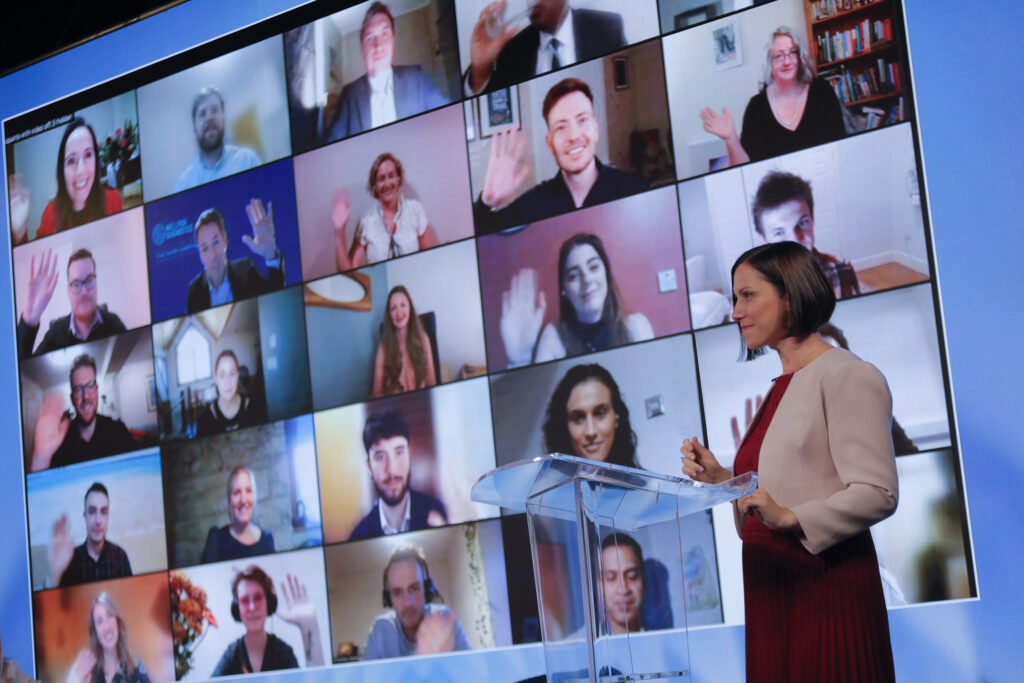CONVERGE, Scotland’s largest company creation and enterprise programme for the university sector, has published its most innovative shortlist for the 2022 programme.
The shortlist has seen an increase in innovative projects focusing on sustainability, AI and healthcare.
Over 200 applications have been whittled down to 101 shortlisted projects across four ‘challenge’ categories – Converge, create change, net-zero and kickstart.
All 18 Scottish Universities are represented in the final cut.
Sustainability, AI, and engineering are key themes from this year’s shortlist, as well as several health-related projects that could directly benefit social care, mobility, and chronic disease management.

Projects with the potential for global impact include Converge Challenge semi-finalist, Podspectrix Ltd from Heriot-Watt University.
Using AI to detect and prevent diabetic foot ulcers – one of the main causes of limb amputations in the UK, this project has the potential to reduce life-altering complications for patients, as well as reducing pressure on the NHS.
Meanwhile, a net-zero semi-finalist, SolSafe from Robert Gordon University, has developed a smart thermal battery, a gamechanger for the energy industry, it can replace both fossil-fuel boilers and supplement heat-pump systems.
Projects in the creative industries this year include Storybuild, a semi-finalist in the Create Change category, developing a web app to enable users to co-create literary works, making the writing process more interactive and less solitary.
There have also been many original ideas in the KickStart Challenge, an early-stage category designed to help academic entrepreneurs at the very first stages of the commercialisation journey.
One such project is Empatech, from Queen Margaret University, which is developing reusable wearable devices that simulate different physical impairments associated with neuro-disabilities.
There has been growth in the diversity of this year’s shortlist with more BAME, disabled and non-British participants than ever before.
The 2022 cohort is the most diverse in Converge’s 11-year history, with 24% of projects from the BAME community.
In addition, 10% of participants identify as disabled, as well as 42% non-British participants.
Claudia Cavalluzzo, executive director at Converge, said: “I am continually amazed by the high quality of innovation emerging from Scottish universities, and this year is no different.
“I believe that this will be one of the most competitive years to date.
“The diversity and inclusivity of this year’s shortlist is particularly encouraging, with more participants from the BAME community and those with disabilities making it into the cohort.
“While parity across all areas remains some way off from being achieved, our efforts to extend the appeal of Converge to a broader and more diverse audience is working.
“I am also particularly inspired to see more of the current university population coming forward with interesting and new concepts and projects to make a difference in the world that we live in.
“Collaboration and ideation within higher education have been undeniably challenged over recent years, however, as we welcome a high proportion of submissions from students this year, this trend has been bucked and is stronger than ever.”
Converge has also announced a new partnership with the Industrial Biotechnology Innovation Centre (IBioIC), one of Scotland’s seven innovation centres, which will award a package of support to one successful Biotech project.
This includes a free membership to IBioIC, a dedicated IBioIC account manager and £20,000 in project funding for the university where the project originated.
Semi-finalists will now move on to attend in-depth training sessions over the coming months, culminating in an award ceremony on 3 November 2022, where the cream of this year’s projects vie for a slice of the £300,000+ prize pot to advance their businesses.
Converge has supported 500+ entrepreneurs and the creation of more than 300+ companies since it launched in 2011.

